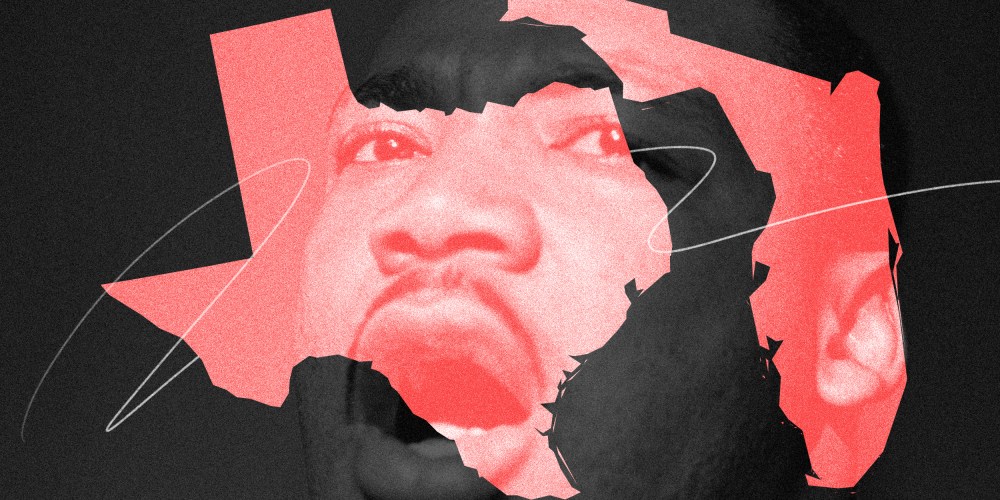Texas this week became the latest state to ban the teaching of critical race theory. The author of the bill, Republican state Rep. Steve Toth, has insisted that the measure was wholly in keeping with the vision of Martin Luther King Jr.
Civil rights activists like King called their protests “demonstrations” because they sought to demonstrate the realities of segregation and discrimination in undeniable terms.
“It echoes Dr. King’s wish that we should judge people on the content of their character, not [the color of] their skin,” Toth told a reporter this month.
This talking point is apparently the new Republican orthodoxy. At a campaign rally last year, then-President Donald Trump claimed that “critical race theory is a Marxist doctrine that rejects the vision of Martin Luther King Jr.” Florida Gov. Ron DeSantis likewise asserted that critical race theory was “basically teaching kids to hate our country and to hate each other based on race,” adding: “It puts race as the most important thing. I want content of character to be the most important thing.”
In making such comments, Republican officials reveal that they don’t really understand critical race theory — and don’t really understand Martin Luther King Jr., either.

Despite the moral panic from conservative politicians that it was designed with “kids” in mind, critical race theory has largely been limited to law schools and advanced graduate programs. (As many joked on social media, if your “kids” are really being taught critical race theory, you should be proud they’re in law school.)
Moreover, far from stressing that race is “the most important thing,” critical race theory challenges the idea that race is a thing at all. It starts with the premise that there is no biological or scientific justification for racial categories and that race was a socially constructed invention — a fiction, but one that has nevertheless been written into our laws and legislation.
Those who work on critical race theory are baffled by the seemingly deliberate mischaracterizations of their work.
Those who work on critical race theory are baffled by the seemingly deliberate mischaracterizations of their work. Kimberlé Crenshaw, the noted law professor at UCLA and Columbia and a pioneering scholar in the field, dismissed Trump’s and DeSantis’ specific claims as “false and slanderous.” As she explained in a recent interview, “Critical race theory just says let’s pay attention to what has happened in this country and how what has happened in this country is continuing to create differential outcomes, so we can become that country that we say we are.”
Contrary to Republican cries that this scholarship is “un-American,” Crenshaw asserts that “critical race theory is not anti-patriotic.”
“In fact, it is more patriotic than those who are opposed to it, because we believe in the 13th and the 14th and the 15th Amendment,” Crenshaw says. “We believe in the promises of equality. And we know we can’t get there if we can’t confront and talk honestly about inequality.”

Talking honestly about inequality, it turns out, was a special point of emphasis for Martin Luther King Jr. He devoted a considerable amount of his activism and authorship doing it. But the limited knowledge that Trump, DeSantis and Toth all have of King’s work apparently begins and ends with that one line about “character.”
To appreciate this reality, and to see how wrong those are who see MLK and critical race theory as diametrically opposed, look no further than two iconic moments the Texas law encourages teachers to use: “Martin Luther King Jr.’s ‘Letter from a Birmingham Jail’ and ‘I Have a Dream’ speech.”
In his landmark address at the March on Washington in August 1963, King did note his hope that “one day” his children would be judged by their character and not the color of their skin, but that was only one line in a more nuanced address.
While King looked ahead to that day, his vision remained firmly fixed on the realities of racism and discrimination in his own time.
More important, while King looked ahead to that day, his vision remained firmly fixed on the realities of racism and discrimination in his own time; he devoted the bulk of his address to identifying and articulating them. King chronicled the ways African Americans faced systemic patterns of discrimination and inequality, from “the unspeakable horrors of police brutality” to the discriminatory public and private policies that put African Americans on “a lonely island of poverty in the midst of a vast ocean of material prosperity.”
“We’ve come here today,” King patiently explained again, “to dramatize a shameful condition.”













